BJP Slams Rahul Gandhi’s Election Fraud Allegation as “Calculated Deceit”, Accuses Congress of Undermining Democracy
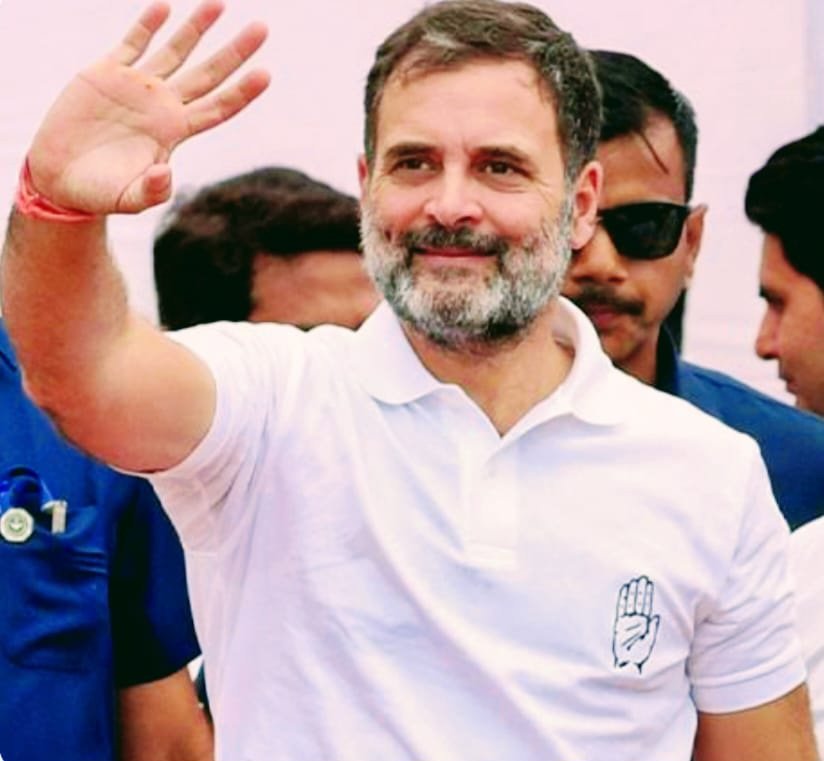
India’s ruling Bharatiya Janata Party (BJP) on Thursday hit back at opposition leader Rahul Gandhi for alleging electoral fraud, calling his remarks a “calculated deceit” and part of a broader Congress conspiracy to undermine democratic institutions. Gandhi, the Leader of Opposition in Parliament, had earlier accused the Election Commission of colluding with the BJP to manipulate voter data in a Karnataka constituency during the 2024 general election, terming it a “criminal fraud”. “There is a huge criminal fraud being perpetrated across the country by the Election Commission and the party in power,” Gandhi told reporters, without naming the BJP directly. Reacting sharply, senior BJP leader and former Union minister Ravi Shankar Prasad condemned the comments as “irresponsible and shameless”, saying Gandhi was attacking a constitutional body out of “frustration and anger” over repeated electoral losses. “You are insulting the people of the country who voted for Prime Minister Narendra Modi for his work, honesty and leadership,” Prasad told reporters at the Parliament complex. “Calling the Election Commission a fraud crosses all limits.” Prasad also accused Gandhi of adopting “double standards” by questioning the poll panel only when the Congress loses elections. Union Minister Dharmendra Pradhan echoed the criticism, calling Gandhi “Bayan Bahadur” (a habitual statement-maker) and accusing the Congress of systematically targeting constitutional institutions. “In the agony of losing power, Rahul Gandhi has completely lost his composure,” Pradhan said in a post on social media platform X. “This calculated deceit points to a larger conspiracy against India’s democracy and Constitution.” He added that the Congress party’s “ideological hollowness” and history, including the imposition of the Emergency in the 1970s, reflected its “authoritarian mindset”. Pradhan also questioned Gandhi’s silence when the Election Commission had invited political parties to raise concerns about the State-wise Information Reports (SIR) in Bihar, suggesting the Congress had failed to act at the appropriate time. “People of Bihar and across India are ready to give a fitting reply to such opponents of democracy,” he said. The BJP’s pushback comes amid rising political tensions as the opposition ramps up its scrutiny of electoral processes following the party’s third consecutive win in the general elections. Gandhi and the Congress have accused the BJP of misusing institutions to retain power — a charge the BJP has consistently denied.
Mamata Banerjee targets voter list overhaul, Bengali identity ahead of 2026 polls
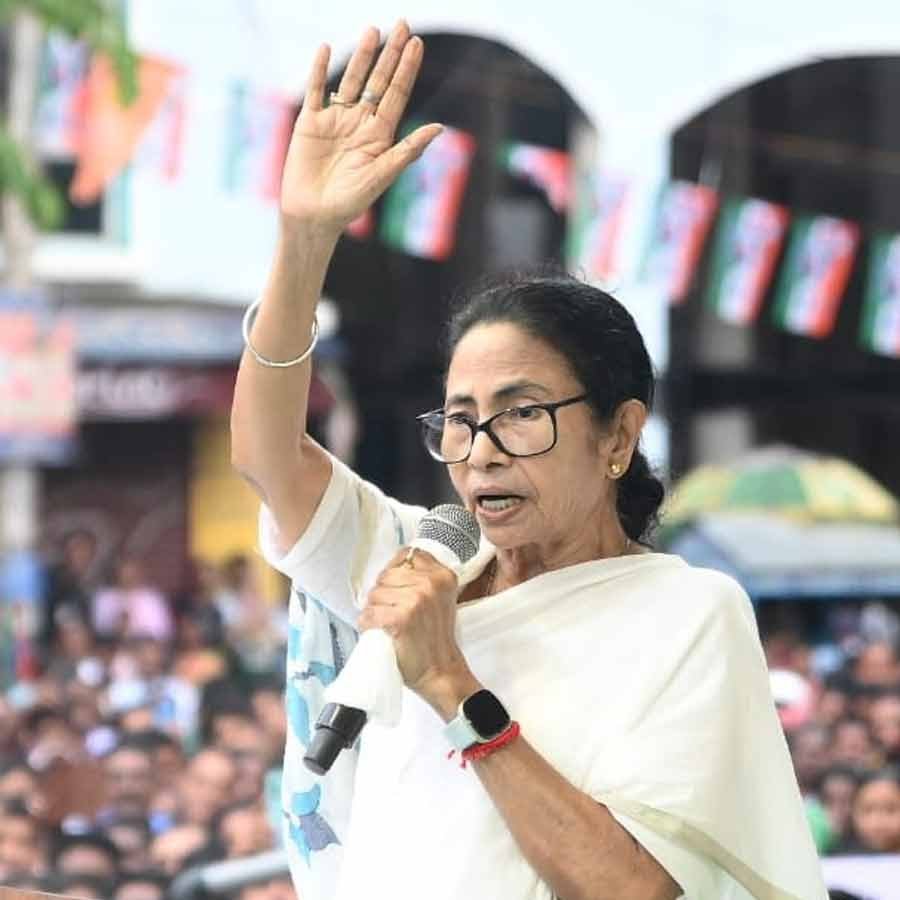
West Bengal Chief Minister Mamata Banerjee on Thursday launched a scathing attack on the Election Commission of India and the central government over the ongoing Special Intensive Revision (SIR) of the electoral roll, warning that the exercise could be a veiled attempt to disenfranchise voters, especially from marginalised communities. Speaking at an event marking World Adivasi Day in Jhargram, Banerjee alleged that the central government was attempting to manipulate the voter list under the guise of bureaucratic formalities. She also pledged to resist what she described as a conspiracy against Bengali identity, indicating that the twin issues of voter disenfranchisement and linguistic pride would shape her campaign in the 2026 state assembly elections. “If someone tells you to fill out a form promising benefits, don’t do it without understanding. Your details could be used to remove your name from the voter list. Then they will send you an NRC notice,” Banerjee warned, referring to the controversial National Register of Citizens. The Chief Minister alleged that the new voter list norms require individuals born before or in 2002 to produce their parents’ birth certificates. “Only 60% had birth certificates back then. How can those born after 2004 be expected to provide their parents’ certificates?” she questioned, calling the demand discriminatory and impractical. Banerjee further alleged that the Election Commission had changed rules arbitrarily, saying, “Just possessing an EPIC card isn’t enough anymore. You need to cross-check your name in the new voter list.” She accused the Centre of targeting state government officials for resisting these changes. “Two of my officers were suspended and sent notices yesterday. On what basis? The elections haven’t even been announced yet. I won’t let anyone be punished unjustly,” she said. Earlier this week, the Election Commission had recommended FIRs against two Electoral Registration Officers (EROs) in West Bengal for alleged lapses in the voter list revision process. The Commission also wrote to West Bengal Chief Secretary Manoj Pant urging disciplinary action. Banerjee also turned her fire on BJP leaders for comments allegedly questioning the legitimacy of the Bengali language. “If Bengali is not a language, then in what language was the national anthem written? What language did Tagore, Swamiji, Raja Rammohan Roy, and Vidyasagar speak?” she asked, adding, “Language is identity. Language is pride.” In a pointed criticism of the BJP, Banerjee said, “These people were born with silver spoons in their mouths. They don’t understand the struggles of the working class.” Banerjee’s remarks mark a sharp escalation in political rhetoric ahead of the 2026 state elections, with the Trinamool Congress positioning itself as the defender of both voter rights and Bengali cultural identity.
Calcutta HC scraps WBJEE merit list over OBC quota issue, directs fresh list based on pre-2010 categories

The Calcutta High Court on Thursday directed the West Bengal Joint Entrance Examinations Board to scrap its merit list and prepare a fresh one based solely on the OBC categories recognised before 2010. The court observed that the merit panel had been prepared by flouting an earlier court order and was therefore invalid. Justice Kaushik Chanda, while hearing the matter, ordered that the new merit list must be drawn up using the list of 66 OBC communities as identified prior to 2010. The board has been given 15 days to implement the directive and a further three weeks to file an affidavit of compliance through an officer of the rank of senior special secretary. The order is also to be communicated to the Chief Secretary of the state. The merit list was originally scheduled to be published on August 7. However, following the High Court’s direction, the result declaration has now been thrown into uncertainty. The court said that reservation for OBC candidates will remain capped at 7 per cent and will be limited to the communities recognised as OBCs before 2010. It ruled that the merit list, if published, must adhere strictly to these criteria. In April 2023, the High Court had set aside all OBC certificates issued in West Bengal under categories introduced after 2010. A total of 42 communities were added in 2010 by the then Left Front government, followed by another 35 in 2012 during the tenure of the Trinamool Congress government. The court had held that these additions were made without following due procedure and hence could not be considered valid. Justice Chanda also expressed concern over the haste with which new OBC certificates were issued in the days following a recent interim stay granted by the Supreme Court on the High Court’s earlier judgment. He questioned how applications, scrutiny, and issuance of such certificates could be completed within a short span, suggesting that the process lacked transparency and due diligence. The court observed that the earlier judgment of the High Court had not been complied with before the Supreme Court’s stay order came into force, thereby amounting to a violation of judicial orders. The High Court’s latest ruling has put thousands of aspirants awaiting admission to engineering and pharmacy courses in limbo, as uncertainty continues over the publication of the WBJEE results. There was no immediate response from the West Bengal education department or the Joint Entrance Board regarding the court’s directions.
Bloodied Body of Unidentified Woman Found in Santiniketan’s Sonajhuri Forest Area

Police recovered the bloodied body of an unidentified woman from the Sonajhuri forest area near Santiniketan in West Bengal’s Birbhum district early Thursday morning, triggering shock and panic in the local community. According to initial police reports, the body was found lying near the edge of the forest with a scarf tied tightly around the neck, suggesting possible strangulation. Local residents first discovered the body and alerted authorities. Police sources and eyewitnesses said the woman had visible injuries, including signs of blunt trauma to her face and eyes. Investigators suspect the woman may have been murdered elsewhere and the body dumped at the spot. Sensing the gravity of the situation, Officer-in-Charge of Santiniketan Police Station, Dolim Mondal, arrived at the scene. The body has been sent for post-mortem examination. Police have launched a formal investigation and are currently reviewing footage from several CCTV cameras installed in the area. Investigators said they are hopeful of making a breakthrough in the case soon. Let me know if you’d like an updated version after police release further details or if you’d like it in a more dramatic narrative style.
India’s Actor Prakash Raj Condemns Mob Attack on YouTubers Reporting from Dharmasthala Amid Mass Burial Probe
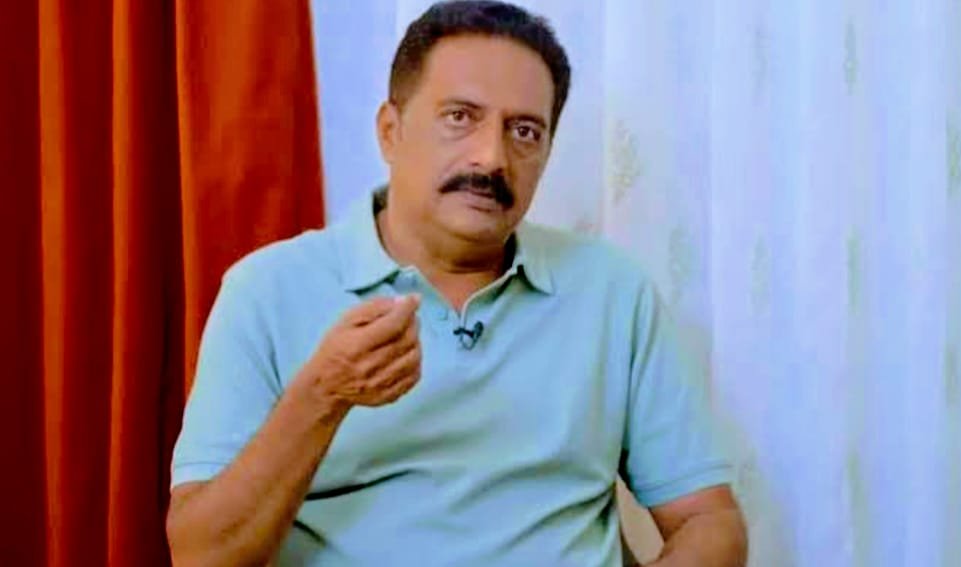
Actor and activist Prakash Raj has strongly condemned the mob assault on a group of YouTubers who were reporting from Dharmasthala in Karnataka, where an ongoing Special Investigation Team (SIT) probe is underway into the alleged mass burial case. Four individuals representing three YouTube channels, including a cameraman, were assaulted by a large mob on Wednesday evening near Pangal Cross in Dharmasthala, located in the Dakshina Kannada district. According to police sources, the group was targeted for allegedly defaming Dharmasthala. In a video message posted on social media, Prakash Raj said, “In Dharmasthala, journalists reporting for justice for Soujanya murder were attacked, which is condemnable.” He added, “Because of these goons, Dharmasthala is getting a bad name. What upsets these goons when it is asked why Soujanya died such a tragic death? It increases the doubt why they are doing this and who are behind them.” Tensions gripped Dharmasthala on Wednesday as clashes erupted between two groups amid the SIT’s investigation into the controversial mass burial case. The incident took place while the YouTubers — Ajay Anchan, Abhishek, Vijay, and a cameraman — were interviewing Rajat, a former contestant on Bigg Boss Kannada. Around 50 to 60 individuals allegedly attacked the group near Pangal Cross, severely damaging their camera equipment. All four victims were admitted to Benaka Hospital in Ujire, with one reportedly in critical condition, police confirmed. The assault occurred near the residence of Sowjanya, a teenage girl who was allegedly raped and murdered in 2012. Her case has resurfaced recently amid allegations of a broader cover-up involving mass burials of multiple victims. Following the incident, the situation escalated further as locals and supporters of the YouTubers gathered outside the Dharmasthala police station and Benaka Hospital. Police had to resort to a mild lathi charge to disperse the crowd. Dakshina Kannada Superintendent of Police Arun K confirmed that no grievous injuries had been reported and said written complaints were received from both sides. FIRs have been registered at Dharmasthala Police Station, including charges related to assault, damage to vehicles, and an attack on a Kannada news channel reporter. Cases of unlawful assembly have also been booked at multiple locations. Police said further action would follow after examining available video footage.
Opposition Slams RBI Governor Over ‘Unrealistic’ Inflation Claims
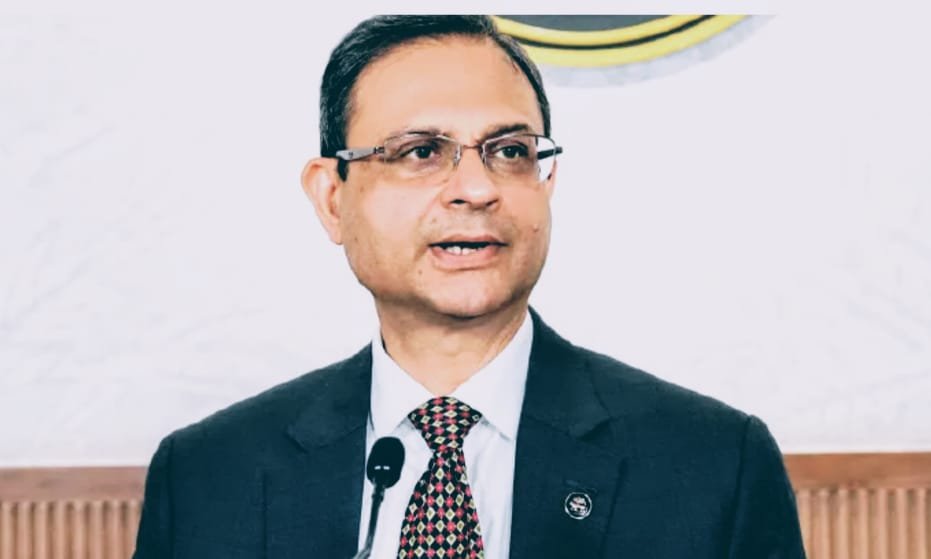
Opposition parties in India, including the Communist Party of India (Marxist) and the Congress, have launched a scathing attack on Reserve Bank of India (RBI) Governor Sanjay Malhotra, accusing him of presenting “unrealistic and politically motivated” statistics on inflation. In a press conference following the central bank’s monetary policy committee (MPC) meeting on Wednesday, Governor Malhotra claimed that inflation in India had dropped to its lowest in six years, even indicating a negative growth of 0.2% in June. “From vegetables to daily food items, prices are now within the affordability of the common man,” Malhotra said, citing RBI data. The governor also noted that food prices had begun to decline since June. However, his remarks sparked immediate backlash from opposition parties and common citizens alike today. “While the common man struggles to manage household expenses, the RBI governor says inflation is nearly non-existent,” said a CPI(M) statement. “This is nothing but data manipulation in service of a political agenda.” Congress state spokesperson Soumya Aich Roy echoed the criticism, saying, “BJP is a party whose words cannot be trusted. After so many years in power, millions of Indians still live below the poverty line.” He also blamed West Bengal Chief Minister Mamata Banerjee, calling her “Modi’s accomplice” in pushing the state toward “extreme uncertainty.” Aam Aadmi Party leader Sanjay Singh also questioned the RBI’s ground reality. “Is there any connection left between the government and the people? In Delhi, from school fees to groceries, everything is unaffordable. The RBI’s claims are divorced from reality.” Data from a recent household expenditure survey appears to support these concerns, indicating that around 39% of an average Indian household’s budget is now spent on food. Despite claims of falling prices, items such as mustard oil, cooking oil, and vegetables have seen sharp increases — with cucumbers and brinjals retailing at Rs 100 per kg, ridge gourds at Rs 80, and green chilies at Rs 120. The RBI attributed the supposed drop in inflation to falling prices of vegetables and pulses, although it provided no region-specific breakdown to support this. Across major metros — Kolkata, Delhi, Mumbai, Bengaluru — local markets reflect a different reality. Critics also questioned the RBI’s decision to keep the repo rate unchanged, despite its own claim of inflation easing. “If inflation is truly under control, why not cut the repo rate by at least 25 to 50 basis points and provide relief to the middle class through lower lending rates?” one CPI(M) member asked. The RBI forecast India’s inflation rate for the current financial year at just 3.1%, but simultaneously revised GDP growth estimates downward from 6.7% to 6.5%, raising further doubts about the credibility of its projections. “The country is being ruled by lies and jumlas,” said Sayan Deep Mitra, a CPI(M) state committee member. “And the chief architect of this politics of deception is none other than Prime Minister Narendra Modi.”
Afghan women deported from Iran: Nearly 700,000 Afghans expelled, UN says
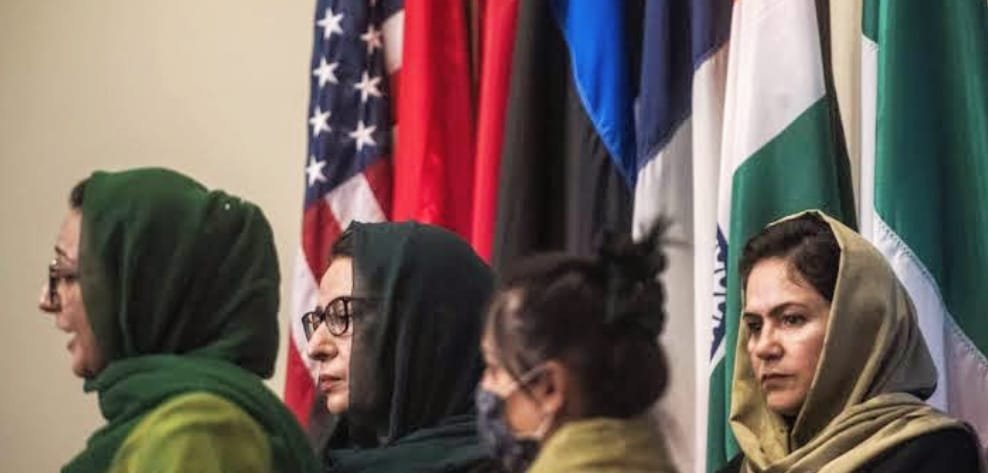
Just weeks away from completing her master’s degree in engineering, 31-year-old Habiba found her future abruptly derailed. Fleeing Taliban restrictions on women’s education, she had sought refuge in Iran and poured years of effort into her studies. But in July, she was deported with little more than her laptop and some documents—sent back to a country where women are banned from attending high school, let alone pursuing higher education. “I was so close,” Habiba said, standing near the Islam Qala border crossing, her voice breaking. “Now I have to start over in a place where my dreams don’t count.” She is one of nearly 700,000 Afghans expelled from Iran since early June, according to the UN refugee agency, as Tehran intensified deportations in the wake of its recent conflict with Israel. Iranian officials cited security concerns and undocumented migration, claiming most Afghans left voluntarily. But rights groups and aid agencies on the ground describe a different reality—families torn apart, people deported without warning, and many arriving home with no possessions or support. “No Future for Us Here” The mass returns have overwhelmed Afghan authorities and aid organizations, many of whom say they were not prepared for the scale or suddenness of the influx. The Taliban-led government has urged Iran to allow deportees time to settle their affairs, but Tehran has moved swiftly, citing an expired registration system for temporary residency cards and security risks amid allegations that some Afghans were spying for Israel—claims Iran has since downplayed. Rahela, 37, had built a stable life in Tehran as a makeup artist and seamstress, supporting her two daughters after separating from her husband. Now back in Herat, she says her independence is gone. Taliban restrictions bar women from working, traveling without a male guardian, or participating in most aspects of public life. “I have no helper and no male guardian,” she said. “My father is old. He can’t help me. We’re trapped.” Women like Rahela and Habiba face not only the trauma of displacement but also the loss of agency and autonomy. “Even when we were mistreated in Iran, at least we could work. At least there was security,” Rahela said. “We Were Beaten, Then Deported” While women speak of shattered dreams and vanishing rights, Afghan men recount family separations, beatings, and economic ruin. Rahim Uzbek, 59, was working as a security guard in Iran when he was detained and deported. His wives and seven children, all Afghan nationals, remain in Iran. He now sleeps in a mosque near the border, with no money, no shelter, and no way to bring his family home. “I had prepaid my rent. The landlord never returned it,” he said, holding back tears. “I have no assets. I don’t even know where to go.” Mansoor Ahmad, a 21-year-old metalworker from Kabul, said he was accused of helping someone escape a deportation facility, then beaten and held in solitary confinement. Red bruises still marked his back and shoulders. “When I spoke, they beat me. When I stayed silent, they beat me again,” he said. Iranian officials deny systemic abuse. Iran’s chargé d’affaires in Kabul, Alireza Bigdeli, said there were no official reports of mistreatment but acknowledged that “some may be unhappy with the way they were treated.” Authorities also insisted that efforts were made to prevent family separations and said students were encouraged to leave voluntarily with their families. Still, many like Habiba and Mansoor say they were given no such choice. A Country Ill-Prepared Afghanistan is grappling with multiple crises—economic collapse, international sanctions, a humanitarian funding shortfall, and a ban on girls’ secondary education. The sudden return of hundreds of thousands of displaced Afghans is compounding the burden. Islam Qala, a parched and dusty border town in western Afghanistan, has become a holding area for the expelled. Aid workers report seeing returnees arrive after days without food or water. Some carried nothing but the clothes on their backs. Despite years of hardship in Iran—where Afghans often faced racism, exploitation, and a lack of legal protections—many say they would return if they could. “Even with the humiliation, there was work,” said Rahela. “There was hope.” Now, hope is hard to find. In Taliban-controlled Afghanistan, deportees are starting from zero, often with little family support and no path forward. “I ran from one prison and walked into another,” Habiba said.
Modi Vows Not to Compromise on Farmers’ Interests Amid Strained India-U.S. Trade Talks
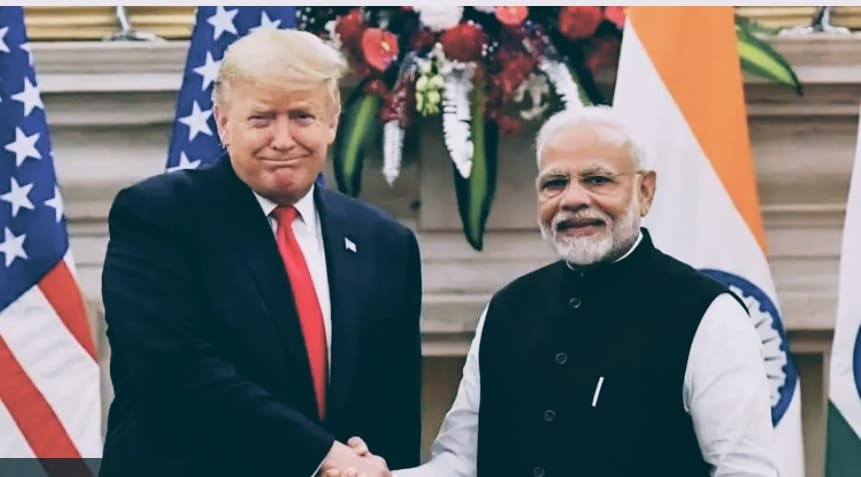
Indian Prime Minister Narendra Modi on Thursday issued a firm message that his government will not compromise on the interests of farmers, even as tensions rise between New Delhi and Washington over an unresolved trade deal. Speaking at an international conference in New Delhi commemorating the centenary of agricultural scientist M.S. Swaminathan—widely credited with spearheading India’s Green Revolution—Modi said, “The interests of our farmers, livestock rearers, and fishermen are of the highest priority. India will never compromise on them.” In a pointed remark widely interpreted as a message to the United States, Modi added, “I know I will have to pay a heavy price personally for this stand. But I am prepared for it. India is ready to protect the interests of its farmers.” His comments come amid mounting friction with the U.S. over trade, particularly involving agriculture and dairy. American officials have reportedly pushed India to open its markets fully to U.S. agricultural products and dairy exports as part of a broader trade agreement. However, Indian negotiators have so far resisted, citing the potential impact on domestic farmers and producers. Tariff Tensions The backdrop to Modi’s speech is an increasingly fraught trade relationship. U.S. President Donald Trump recently announced a second round of tariff hikes, bringing total duties on Indian goods to 50%. The move comes after India continued oil imports from Russia, defying Western pressure to scale back economic ties with Moscow amid the ongoing war in Ukraine. Trump has hinted that further restrictions may be imposed on countries that maintain trade relations with Russia, warning that “many more” punitive measures could be on the way. Although trade negotiations between India and the U.S. are ongoing—with five rounds already completed—officials on both sides acknowledge that a final agreement remains elusive. Talks are expected to resume later this month when a U.S. trade delegation visits New Delhi. India Resists “One-Sided” Deal Sources within India’s commerce ministry say Washington wants unfettered access to Indian markets for U.S. agricultural products, milk, and dairy goods. But New Delhi remains firm that it will not enter into any “one-sided” deal that prioritizes American interests while endangering domestic livelihoods. “There’s no question of rushing into an agreement that only benefits the U.S.,” one government official said, speaking on condition of anonymity. Green Revolution Legacy and Domestic Messaging Analysts see Modi’s remarks as aimed not just at the U.S. but also at a domestic audience increasingly anxious over global pressures on Indian agriculture. The choice to deliver this message at an event honoring M.S. Swaminathan—whose work transformed India from a food-deficient country to a grain-exporting nation—was symbolic. Swaminathan’s legacy is closely tied to Indian self-reliance in agriculture, particularly wheat, which once reduced dependence on U.S. grain imports. Modi’s speech was seen as reinforcing that spirit of independence, even as India navigates the complex landscape of global trade diplomacy. The Prime Minister’s firm stance is likely to resonate with India’s vast rural population and farming community, as his government prepares for general elections in the coming year. For now, the path to a comprehensive India-U.S. trade agreement appears uncertain. And with tariffs mounting and political stakes rising, the gap between economic pragmatism and political priorities may continue to widen.
Awami League Eyes Comeback One Year After Ouster, Pins Blame on ‘Conspiracy’
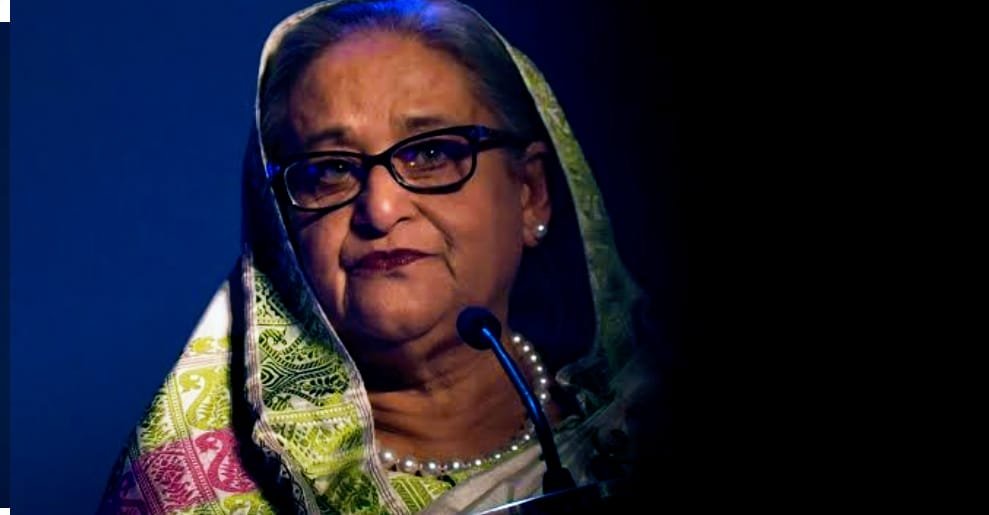
Parallel News Digital Desk, 7th August:
Calcutta HC Grants Interim Protection to Mithun Chakraborty in Unpaid Dues Case
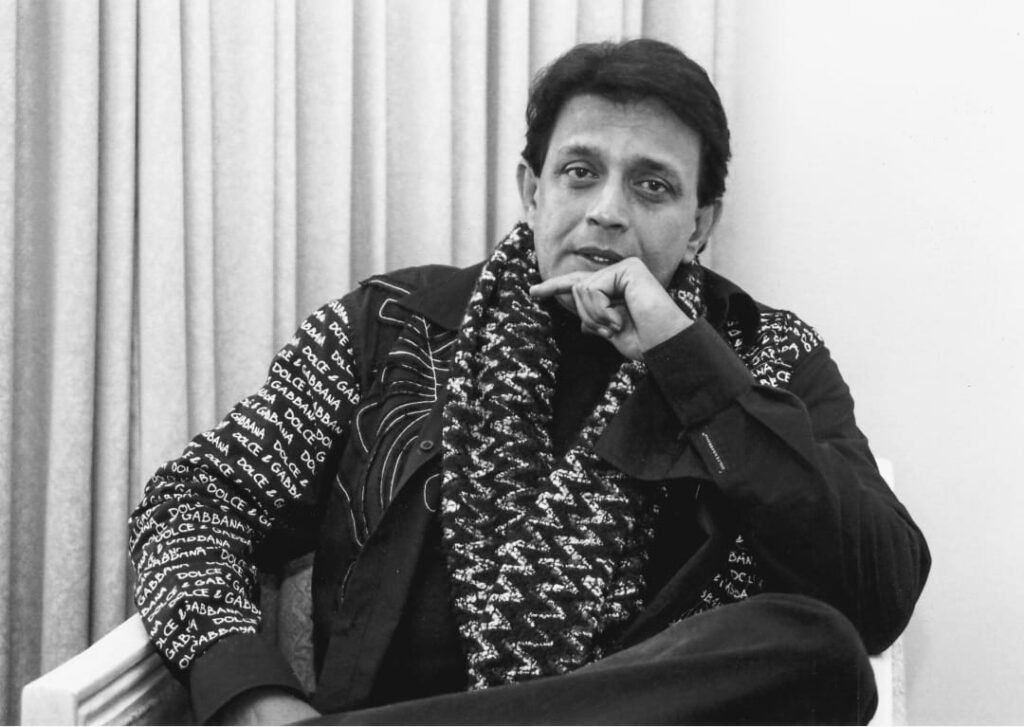
The Calcutta High Court on Wednesday granted interim protection to actor-turned-politician Mithun Chakraborty from any coercive action in connection with a police case over alleged unpaid dues. Justice Jay Sengupta barred authorities from taking coercive steps against Chakraborty until Sept. 10, while allowing the investigation to proceed. The matter is scheduled for further hearing on Sept. 3. The case, registered at Chitpur police station in north Kolkata, stems from a complaint by a man who claims he carried out interior decoration work for a hotelier based on assurances allegedly made by Chakraborty. The complainant alleges that a billed amount of around 3.5 million rupees ($42,000) remains unpaid. Chakraborty has petitioned the court to quash the FIR, arguing that the allegations are false and motivated. He also sought interim protection from coercive measures during the pendency of the proceedings.






